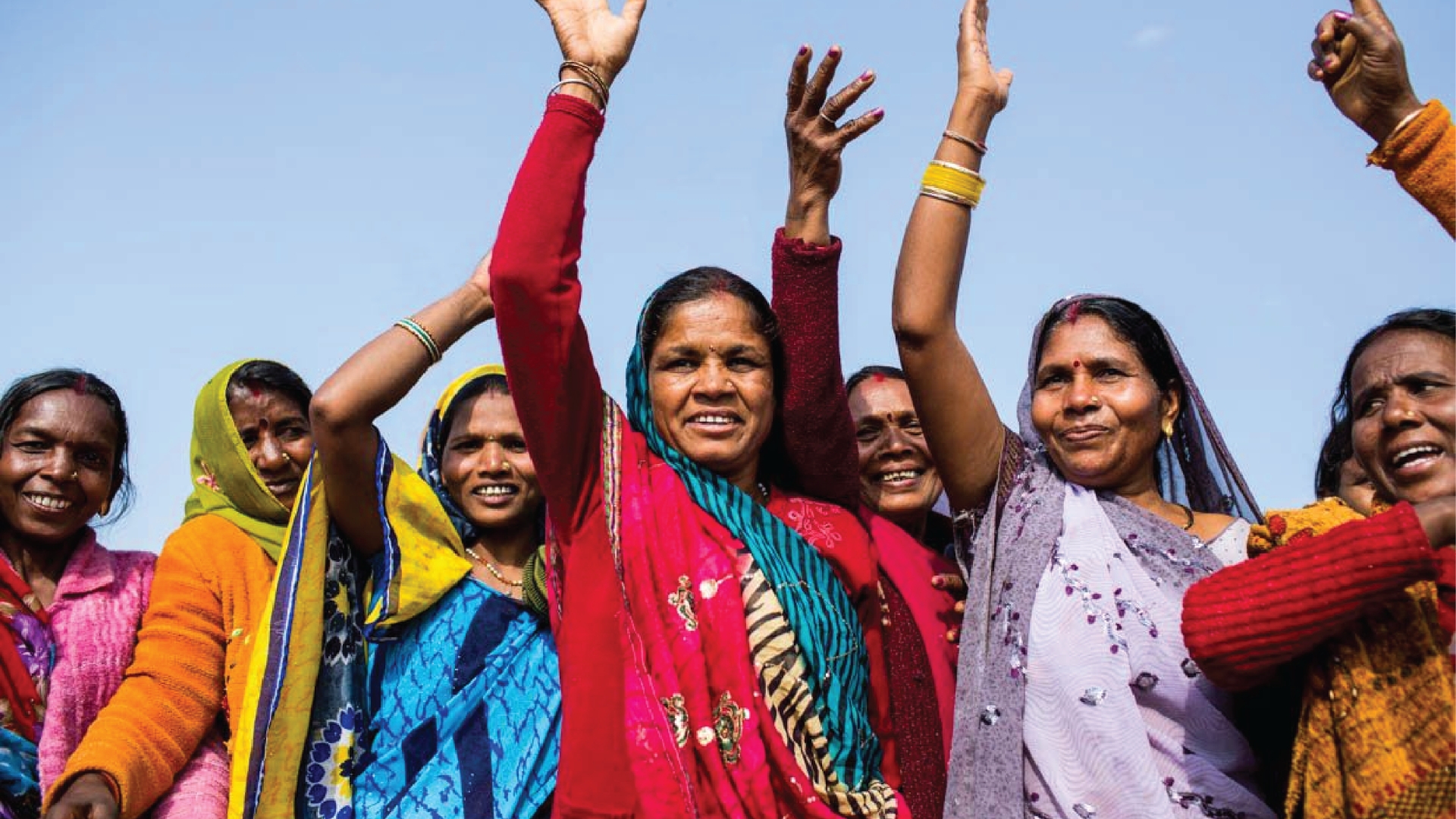Innovations and Insights from the E-Rozgar Journey

Women transforming e-waste into dignity, livelihoods, and a circular future
In the sprawling urban expanse of Bengaluru, amidst the city’s towering tech parks and busy streets, a quieter revolution is underway. Meet Ammu and Jaya Lakshmi — two women whose everyday lives echo the story of resilience, aspiration, and transformation being authored by the E-Rozgar initiative.
BackgroundIndia generates staggering quantities of electrical waste every year, with Bengaluru contributing over 92,000 tonnes. However, only a fraction of this is safely processed through formal channels. The bulk of e-waste handling falls into the hands of informal workers, most of them women, who undertake this hazardous task without security, recognition, or adequate income.
E-Rozgar, led by PCI India, addresses this challenge head-on by creating women-led, community enterprises dedicated to ethical, structured e-waste management. Through decentralized collection kiosks and refurbishing units, the project transforms informal waste pickers into empowered entrepreneurs, fostering dignified livelihoods and catalyzing a sustainable circular economy.
The initiative also integrates a digital tool called the Naari Circuit, developed with deep input from the communities, enabling women to record waste volumes, track earnings, and directly connect to certified recyclers — effectively bridging grassroots action to formal sectors.
The true heartbeat of E-Rozgar is found in the journeys of its champions — women like Ammu and Jaya Lakshmi, who embody the power of opportunity meeting perseverance.
Ammu’s Story: From Survival to Leadership
At 30, Ammu’s journey has been marked by hardship and hope. Orphaned young and widowed just three years ago, she shoulders the responsibility of raising four children while sustaining her family through waste picking.
Initially confined to the margins of informal work, Ammu’s life is changed upon joining E-Rozgar. Now, as a leader of one of the first e-waste collection units in Bhansankari, she manages operations with a vision far beyond survival.
“People like us are not seen as leaders. But through E-Rozgar, I want to prove we can build and lead something that matters.”
Her aspiration is clear: to efficiently run the centre, inspire other women, shift societal perceptions, and secure a steady, respectable income that uplifts her family.
Jaya Lakshmi: Breaking Stigma, Building Futures
Jaya Lakshmi, 31, follows a generational path in the waste sector, yet refuses to be bound by stigma. Married with a toddler, and having relocated from Tiruvannamalai, she embraces her role in the e-waste ecosystem with renewed pride and purpose.
She actively participates in trainings, enterprise setup, and daily management, envisioning a future where her work commands respect and affords her child a secure upbringing.
“Earlier, I used to hide what I did for a living. Now I want people to see us as women who run our own center and lead our own way.”
Innovations and Learnings Shaping E-Rozgar’s Journey
- Naari Circuit: Digital Empowerment that Counts – Ground research highlighted challenges like lack of transparency, data gaps, and limited market access. Responding to this, the Naari Circuit platformenables the women to digitally log collections, track materials, and connect directly to certified recyclers, offering real-time data and guaranteeing accountability in a previously unstructured sector.
- Decentralized Enterprises: Ownership at the Forefront – Rejecting a one-size-fits-all approach, under E-Rozgar project six community-owned enterprises will be established where women lead operations, decisions, and community mobilization. This localization respects cultural contexts and harnesses the strength of community networks, setting a foundation for sustainable and scalable livelihoods.
- Multi-Model Livelihoods: Flexibility and Inclusion –
- E-Rozgar embraces diversity, offering multiple engagement pathways—from home-based part-time roles facilitated by mobile apps to women-led sustainable logistics using electric vehicles, and creative opportunities in artisanal upcycling. This flexible framework ensures women with varied responsibilities, mobility, and aspirations can join and flourish in the circular economy.
- Deep Stakeholder Engagement: The program’s success hinges on deep stakeholder engagement: connecting with SHGs, federations, municipal bodies like BBMP and SPCB, authorized recyclers, resident welfare associations, and families themselves. Continuous dialogues foster trust and acceptance, while training in local languages empowers women with essential skills, gradually transforming social perceptions around waste work.
Overcoming Societal Barriers
The journey of women stepping into the e-waste sector is not without its challenges. Deeply rooted cultural norms and societal stigmas often cast shadows over their efforts, portraying waste work as menial or undesirable. Many women face apprehensions within their own families—concerns about safety, social acceptance, and the dignity of engaging in waste management.
Recognizing these sensitive dynamics, the E-Rozgar initiative has taken a holistic approach to transformation, one that goes beyond economic empowerment to address social acceptance and cultural inclusion. The program invests in continuous community engagement, building relationships not only with the women participants but also with their families, local leaders, and community gatekeepers. This inclusive dialogue fosters understanding, gradually breaking down misconceptions and fears.
Insights
pilot project processing 200 kilograms of e-waste provided invaluable insights into pricing, supply chains, and operational challenges. Coupled with extensive market surveys and direct field feedback via the Naari Circuit platform, this data fuels ongoing refinements—ensuring adaptability and sustainability in a complex environment.
Conclusion
Ammu, Jaya Lakshmi, and hundreds of other women stepping into E-Rozgar’s ecosystem illustrate the transformative power of combining innovation, collaboration, and respect for lived experience.
By turning discarded electronics into dignified enterprise and reclaiming agency through technology and community, E-Rozgar charts a path for the future — one where urban waste becomes wealth, and women shape not just livelihoods but a thriving, inclusive circular economy.
At its core, this initiative illustrates a universal truth: when communities are listened to, technologies are co-created, and opportunities are equitably shared, sustainable transformation is possible.
The author is Shivanshi Patwal, Project Co-ordinator, PCI India
